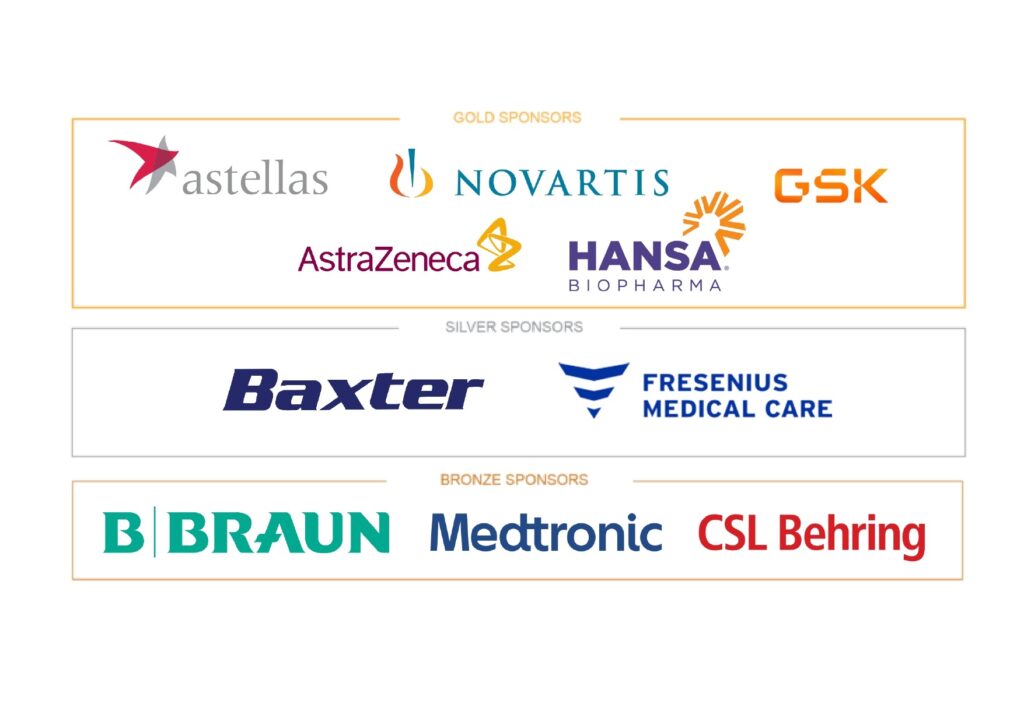28 JUNE FROM 15.00-17.00 CEST IN THE EUROPEAN PARLIAMENT IN BRUSSEL

The 2023 European Kidney Forum: ‘The future of kidney care – Investing in green nephrology to meet the European Green Deal Targets’!
On 28 June, from 15:00 to 17:00 CEST, the European Kidney Health Alliance (EKHA) and the MEP Group for Kidney Health hosted the European Kidney Forum in the European Parliament in Brussels.
The 2023 European Kidney Forum focused on the value of investing in green nephrology to meet the European Green Deal targets. The environmental impact of dialysis is particularly large, given its high rates of water consumption, waste creation, and greenhouse gas emissions. Simultaneously, environmental changes lead to serious disruptions of safe and effective kidney care, and foster the emergence of new cases of kidney disease. Against this backdrop, efforts to ensure the ecological optimisation of dialysis are crucial.
Speakers elaborated on a range of pressing issues, including the bidirectional link between nephrology and the environment, the impact of the energy crisis on the continuity of safe and effective kidney care, and progressive solutions and EU opportunities for environmentally-friendly nephrology.
EKHA’s management team also published an article on the topic: Policy forum in the European Parliament: Calling for a paradigm shift towards green kidney care which you can find here
Full programme available here
Pictures of the event available here
Please find here the report of the Forum made by ‘The Parliament”
Please find here the recorded extended summary version
In summary you will see the following speakers and the topics addressed:
| 0 – 2.30 min | Opening Statement by Ondřej Knotek MEP (Renew, Czechia) who underlined that research investment from the EU and by companies was needed to find alternative treatments. |
| 2.30 – 3.32 min | Hilde Vautmans MEP (Renew, Belgium) who stated that “we need to ease the burden on patients and reduce the impact on the environment.” |
| 3.22 – 10.03 min | EKHA President, Professor Raymond Vanholder, set the scene, outlining the scale of the challenge. |
| 10.03 – 13.50 min | Fiona Loud, Policy Director, Kidney Care UK, looked at the growing costs of home dialysis for patients who faced increased water and energy costs. |
| 13.50 – 15.34 min | President of the European Kidney Patients’ Federation (EKPF), Daniel Gallego, said that patients were concerned by the environmental footprint of treatment |
| 15.34 – 19.06 min | Professor Giorgina Piccoli, Head of the nephrology service at the Le Mans Hospital Centre, France, has identified areas where waste can be reduced. |
| 19.06 – 21.32 min | President of the European Dialysis and Transplant Nurses Association/European Renal Care Association, Dr Ilaria de Barbieri, underlined that nurses are involved in continual quality improvement and are in a particularly strong position to ensure the most efficient (re)use of resources. |
| 21.32 – 23.22 min | Daniel Gallego (EKPF President) answers the question on how green nephrology would give patients more power/ |
| 23.22 – 25.24 min | Dr. Ilaria de Barbieri (EDTNA/ERCA President) answers the question, what the barriers are to try out more sustainable approaches of kidney care. |
| 25.24 – 35.06 min | Juozas Olekas MEP (S&D, Lithuania) stated the importance of the healthcare sector not to be overlooked in terms of its environmental impact and all relevant initiatives in the parliament should be looked at to enhance the awareness of CKD and its impact. |
| 35.06 – 39.52 min | Professor Giorgina Piccoli & Dr. Ilaria de Barbieri address recycle possibilities |
| 39.52 – 43.34 min | Health Care Without Harm Europe Director of Programmes, Arianna Gamba, stated “that we cannot recycle our way out of this problem since at the moment less than 10% of all plastics has been recycled”. |
| 43.34 – 47.53 min | Charlotte Roffiaen of Renaloo – a French patient organisation – called for improvements in organ donation and transplantation to reduce the need for dialysis, in particular, the value of sharing best practices between countries. |
| 47.53 – 55.24 min | Dr Fokko Wieringa, Principal Scientist, Connected Health Solutions Department, IMEC, The Netherlands, said that if we took 0.3% of what we spend annually on dialysis for the next seven years, we could have much better technologies available by 2030. |
| 55.24 – 59.09 min | Dr Fokko Wieringa gives some more details on the miniturisation of implantables. |
| 1.02.42 – 1.06.47 | In his closing remarks by EKHA President, Professor Raymond Vanholder said that we must be realistic about the situation. “We need to find a solution and we need to do it in a coalition involving everyone from patients to industry to healthcare providers and with policymakers, because they have the ability to push for change.” |
This Forum was supported by:

